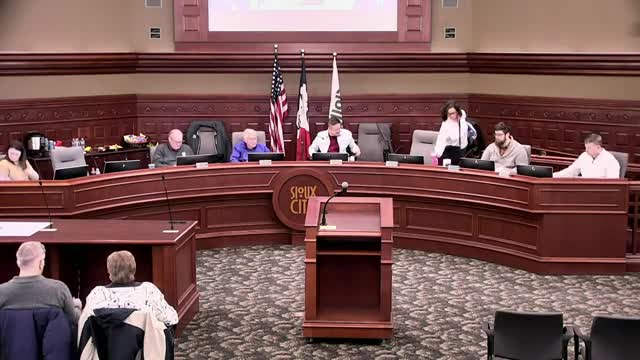Sioux City budget hearing: finance staff warns ‘gloom and doom’ as council reviews CIP impacts
Get AI-powered insights, summaries, and transcripts
Subscribe
Summary
Finance staff gave a capital-improvement-program overview that highlights large, federally funded airport work and state policy cuts that will increase local debt service, with council members pressing staff about timing and trade-offs.
Teresa, a finance staff member, opened the city's capital improvement program (CIP) presentation by walking the City Council through the budget timeline and key revenue and cost drivers. She said the city must submit a county deadline on March 5 and set the council's final budget approval for April 14.
"This year, unfortunately, it's all gloom and doom," Teresa said, noting the CIP is dominated by a large federally matched airport reconstruction and that several state-level policy changes are reducing city revenue. She listed near-term impacts: elimination of backfill ($1,500,000), House File 718 effects (about $1,200,000), and changes to business property credits (about $490,000). Teresa also said the city will use some fund balances this year, including about $1.0 million from the road use fund and $1.9 million from the airport subsidy.
Why this matters: Teresa told the council the combination of reduced state support and rising costs for health insurance and liability means more pressure on operating levies. She highlighted debt service as one lever the city is using for large equipment and capital items, but cautioned that rising debt can affect bond ratings and long-term interest costs.
Council reaction and next steps: Council members thanked staff for the clearexplanation and pressed for follow-up information in wrap-up. The finance presenter said the team will return with technical changes at wrap-up and additional detail about ARPA encumbrances and how capital debt will translate into the operating levy. The council also asked staff to flag where grant matches and reimbursements offset tax askings.
Ending: Teresa emphasized the CIP remains a mix of grant-reimbursed, bonded and pay-as-you-go projects and asked council to prioritize accordingly as staff finalizes the wrap-up package.
